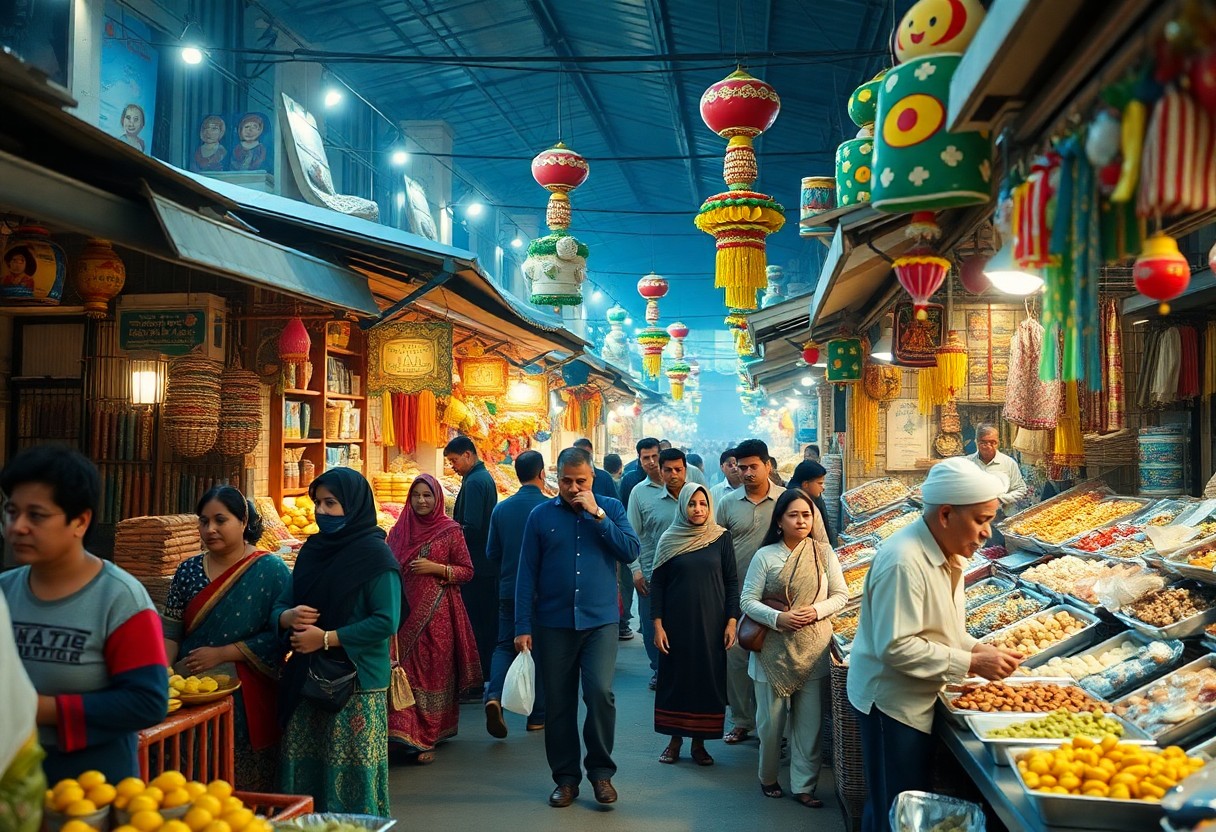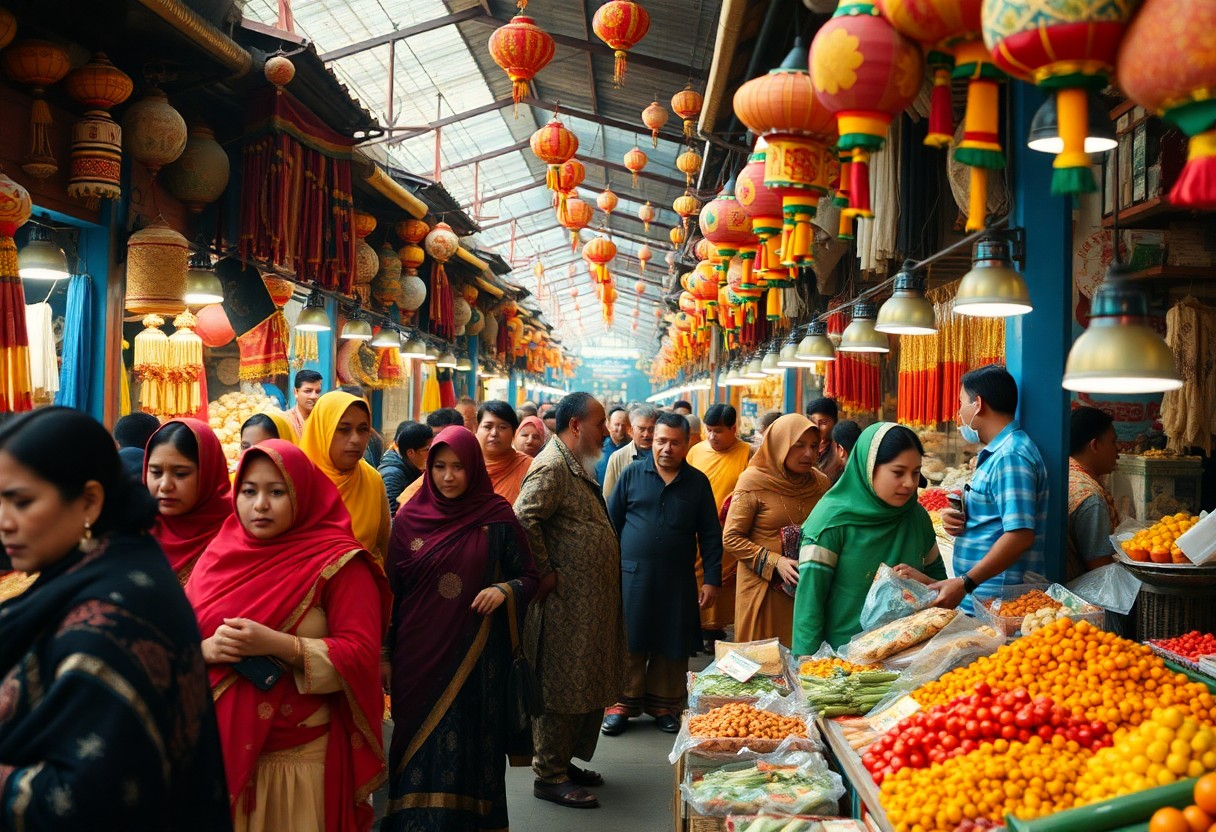Most travelers overlook the rich tapestry of local cultures that lie beneath the surface of popular destinations. By venturing into the traditions and customs of the places you visit, you can gain a deeper understanding of their history and people. This exploration not only enriches your travel experience but also fosters respect and appreciation for diverse ways of life. In this blog post, you will discover how to immerse yourself in local cultures, embracing unique practices, rituals, and celebrations that make each destination truly special.

The Significance of Local Cultures
A deeper understanding of local cultures enriches your travel experiences and fosters meaningful connections with the people you encounter. By immersing yourself in their traditions and customs, you gain insights that transcend mere observation, allowing you to appreciate the unique tapestry of human expression and creativity. Each culture’s significance lies in its ability to shape identities, preserve history, and promote community cohesiveness.
Understanding Traditions
Understanding the essence of traditions involves recognizing the stories, values, and experiences that have been passed down through generations. These age-old rituals and practices reflect the collective identity of a community, revealing how they celebrate life, mourn losses, and honor significant milestones. By embracing local traditions, you open the door to a world of knowledge and warmth.
The Role of Customs
The role of customs in a culture is a rich tapestry that defines social behavior and human interaction. They guide you through everyday life, shaping your understanding of appropriate behaviors and norms within a community.
This connection to customs allows you to navigate the complexities of social interactions with more ease. Engaging with local customs not only enhances your cultural awareness but also showcases your respect for the community’s values. Whether it’s participating in a festival, sharing meals, or respecting social cues, these experiences foster a deeper understanding and appreciation of the culture you are exploring. By recognizing the nuances of customs, you enhance your travel journey and contribute positively to the communities you visit.

Celebrations and Festivals
Now, let’s explore the vibrant world of local celebrations and festivals, where communities come together to honor their heritage, history, and shared experiences. These events often reflect the unique customs and traditions that define a culture, providing you with an opportunity to engage with local people and their stories. Each celebration offers insight into the values and beliefs of a community, making it a wonderful aspect of your cultural exploration.
Types of Local Festivals
An array of festivals showcases the diversity of cultures around the globe. Consider the following types:
- Religious Festivals
- Cultural and Artistic Festivals
- Seasonal Festivals
- Food Festivals
- Historical Commemorations
Any of these festivals can serve as a window into the soul of a community, revealing the stories and traditions that shape their identity.
| Type of Festival | Example |
|---|---|
| Religious Festivals | Diwali in India |
| Cultural and Artistic Festivals | Edinburgh Festival Fringe |
| Seasonal Festivals | Oktoberfest in Germany |
| Food Festivals | Borrego Springs Desert Festival |
| Historical Commemorations | Fourth of July in the USA |
Cultural Significance of Celebrations
Celebrations are a reflection of your cultural identity, linking past traditions with contemporary life. They serve as an opportunity for individuals and communities to express their beliefs, foster social bonds, and celebrate their unique heritage.
In fact, engaging with local festivals provides you with a deeper understanding of the cultural narratives that shape the world’s diverse communities. Through participation, you can witness the vibrant expressions of joy, gratitude, and solidarity that permeate these gatherings. Each celebration allows you to connect with local heritage, making your travels more enriching and memorable.
Local Cuisine
While exploring local cultures, delving into their cuisine offers you a delicious insight into their history and traditions. Each dish tells a story, and the flavors often reflect the landscape, climate, and resources of the region. Engaging with local cuisine allows you to connect more deeply with the culture and its people, making your journey all the more enriching.
Traditional Dishes
Along your journey, you will encounter traditional dishes that are representative of the local culture. These meals have often been passed down through generations, showcasing unique ingredients and preparation methods that highlight the region’s culinary heritage. By tasting these dishes, you allow yourself to experience the authentic flavors that define the community you are visiting.
Culinary Customs and Practices
Customs surrounding food preparation and consumption play an integral role in local cultures. Each region has its rituals, from specific ways of serving meals to the etiquette observed at the dining table. Understanding these practices enhances your appreciation for the cuisine and the social connections that food fosters within the community.
Considering the various culinary customs during your travels enriches your experience and deepens your understanding of local cultures. This might include communal eating practices, which emphasize sharing and togetherness, or specific rituals that celebrate seasonal changes or harvests. By engaging with these culinary customs, you gain insight into the values, beliefs, and traditions that shape the fabric of the local community.
Art and Craftsmanship
After immersing yourself in the rich tapestry of local culture, you’ll discover that art and craftsmanship play a significant role in reflecting a community’s identity. Traditional techniques, often passed down through generations, showcase unique aesthetics and values. For a deeper insight into Local Culture | Customs | Traditions | Etiquette, you can explore various mediums that illustrate cultural narratives and artistic expressions.
Traditional Art Forms
Any exploration of local cultures will unveil traditional art forms that resonate with the hearts of the community. These expressions often encompass painting, sculpture, textiles, and pottery, each telling a story that connects you with local history and significance.
The Importance of Handicrafts
Handicrafts embody the soul of a culture while supporting local artisans. By appreciating and purchasing these handmade goods, you contribute to the preservation of age-old techniques and empower communities to maintain their craft traditions.
Craftsmanship celebrates human creativity and skill, intertwining personal narratives with cultural heritage. As you engage with local handicrafts, you enhance your understanding of the community you’re visiting, fostering connections that transcend mere tourism and turning your experience into a shared story of resilience and artistry.
Language and Communication
Not all forms of communication are universal; language plays a vital role in connecting the people of a culture. It shapes how you understand their values, beliefs, and traditions. By engaging with the local language, you gain deeper insights into their perspectives and the nuances that go beyond mere words. Understanding language barriers can enrich your journey, revealing the intricate links between speaking and living within a community.
Dialects and Regional Languages
Around the world, local dialects and regional languages create a tapestry of communication that reflects unique histories and identities. These dialects often convey expressions, jokes, and references that are steeped in local culture, offering you an invitation to probe into the richness of each community. Embracing these differences can enhance your travels, making interactions more meaningful and enjoyable.
The Influence of Language on Culture
Below the surface, language is not just a tool for communication; it conveys the essence of a culture. It shapes thoughts and perspectives, influencing how communities view the world around them and interact with it. Language nuances can unveil underlying values, lending you a richer understanding of local traditions and social norms.
But the influence of language on culture extends beyond mere communication. It encompasses the idioms, proverbs, and stories intertwining with local identities, allowing you to grasp the cultural fabric that holds communities together. Each phrase holds a history, a lesson, or a belief that shapes social interactions. By engaging with the local language, you gain access to this vibrant cultural narrative, fostering a deeper appreciation for the diversity that surrounds you.
Preservation of Local Cultures
Your journey through local cultures highlights the importance of preserving unique traditions and customs. Through community engagement, education, and tourism, you can support the continuation of these rich heritages. By valuing local identities, you contribute to a tapestry of diversity that enriches your understanding of the world.
Challenges Faced
Around the globe, traditional cultures face numerous challenges, including globalization, urbanization, and the declining interest of younger generations. This often leads to the erosion of languages, rituals, and crafts that have been passed down through generations. You may find that economic pressures overshadow the importance of cultural practices, causing them to be undervalued and forgotten.
Innovative Solutions and Efforts
Along with the challenges come innovative solutions designed to foster cultural preservation. Communities are employing technology, like social media and online resources, to promote cultural awareness and appreciation. You can engage with these efforts by participating in local events, supporting artisans, or advocating for educational programs that celebrate your region’s heritage.
Understanding the need for innovative approaches can lead to impactful preservation strategies. Community workshops, festivals, and artisan markets offer you not only the chance to experience local cultures firsthand but also to help sustain them. Initiatives that involve documenting oral histories, revitalizing traditional crafts, or creating digital archives ensure that these customs will be accessible for future generations. By actively participating, you become a vital part of this preservation journey, fostering a deeper connection to the cultural richness surrounding you.
Conclusion
From above, you can appreciate that exploring local cultures enriches your understanding of the diverse traditions and customs that shape our world. Engaging with various communities allows you to gain insights into their values, practices, and histories, fostering a deeper appreciation for human experience. By immersing yourself in these cultural journeys, you not only broaden your perspective but also contribute to the preservation and celebration of unique heritages. Embrace the opportunity to discover the vibrant narratives that each culture holds, and let these experiences enhance your global awareness.